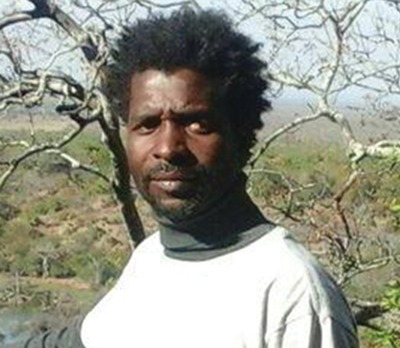
The Zimbabwean economy has been on the downward spiral despite denial from the authorities, but there was a glimpse of hope that tourism would save the country until the COVID-19 pandemic changed everything.
The country is known as one of the safest and best safari destinations, a tag that has not changed even in the face of two decades of media slandering during the late former President Robert Mugabe’s reign.
Zimbabwe has the major drawcards of its natural resources like the Victoria Falls – one of the seven world natural wonders – a resort that is on many avid tourists’ bucket list. The resort is so popular that Zambia, Botswana and South Africa market it as one of their resorts.
The country also has the pristine, rugged natural wildlife sanctuaries such as the Hwange, Gonarezhou and Matusadonha national parks.
These are parks that are in near perfect natural state, wild and pure in form without any significant modern infrastructure except the dirty roads and luxurious bush lodges.
The Eastern Highlands, a stretch of mountainous ridge that encompasses Nyanga, Chimanimani and Bvumba mountains has the highest number of recorded flora and fauna, birds and small game. However, the area is known for its rolling highlands similar but better than the Scottish Highlands.
A place Queen Elizabeth II visited and openly admired, giving many places in the area royal names like Prince of Wales world view in Bvumba.
There is also Lake Kariba, the single largest man-made lake when it was completed in 1957. In actual effect, both the dam and the surrounding areas are a national park that is also home to some of the big five animals minus the rhinoceros.
- Chamisa under fire over US$120K donation
- Mavhunga puts DeMbare into Chibuku quarterfinals
- Pension funds bet on Cabora Bassa oilfields
- Councils defy govt fire tender directive
Keep Reading
The Great Zimbabwe monument in Masvingo is a standout piece of architecture ahead of its time that many scholars tried to ascribe to Arabs as they doubted Zimbabweans’ capability of being that sophisticated by 1000AD.
Tourism is among the top three foreign currency earners in Zimbabwe after mining and agriculture.
Annually it brings in on average US$1 billion in receipts. This is no small change for a country desperate for foreign currency, a country reeling under the yoke of economic sanctions imposed by the United States since the turn of the century.
Zimbabwe cannot access fresh lines of credit from the World Bank, International Monetary Fund and the African Development Bank because of the US sanctions.
Admittedly, the country owes the Bretton Woods Institutions and is in arrears, but it is a situation that many low-income countries find themselves in yet they still receive debt relief.
Zimbabwe in 2010 expanded its three main airports – Robert Mugabe, Joshua Nkomo and Victoria Falls – giving them the capacity to handle a combined plus three million visitors annually. The expansion project meant wide-bodied aircraft could now land directly at Victoria Falls International Airport from any country.
However, the projected tourism income of US$1 billion is going to be lost this year due to the COVID-19 pandemic that has hit the sector very hard across the world. Airlines have grounded their planes and it seems like they will not fly anytime soon before the northern hemisphere autumn.
If airlines remain grounded till September, it would mean that Zimbabwe would have missed European visitors who usually travel during the northern hemisphere summer – June to August. It also means that the hunting season will be wiped out.
“The last is obviously the worst-case scenario which assumes an 85% decline in arrivals to close the year at 350 000 tourist arrivals. This is predicated on the assumption that the current status of restrictions on international travel persists until year end especially in our major source markets of Europe and the US,” Tourism minister Nqobizitha Mangaliso Ndlovu said last week.
The government has given the sector a $500 million bailout (about US$10 million on the parallel market) which is a drop in the ocean compared to US$1 billion projected receipts in 2020. The tourism players beyond looking for a bailout from the State have to re-imagine and reshape the sector’s operations considering the changed international circumstances.
For the first time, the players have to think of local tourism as the greenbacks will remain across the shores.
This would imply the stakeholders reviewing the way they market and price their products, the synergies they make with the transport sector and more importantly, having a customised product for the new market.
Tourists are not looking for kingsize beds, four-course meals or 55-inch television sets in their rooms or Olympic-size swimming pools.
They are looking for experiences, activities and above all the time to immerse themselves into a new environment. These products have to be charged considering the average salary in the economy, comparable costs in the region and changing tourism trends.
Airbnb has revolutionised travel and tourism. These are the same type of players the local industry has to compete with. An Airbnb night on average costs between US$15 and US$45, a considerable discount compared to the US$80 to US$120 per night in three-star hotels.
The writing is on the wall for the tourism sector – adapt or die. It may sound cruel, but it’s a reality that they will sink if they continue to operate tomorrow using yesterday’s models. South Africans say “local is lekker”, probably it is time we develop our own standards to rescue and enjoy this low-hanging fruit – tourism.
Paidamoyo Muzulu is a journalist and writes here in his personal capacity.











